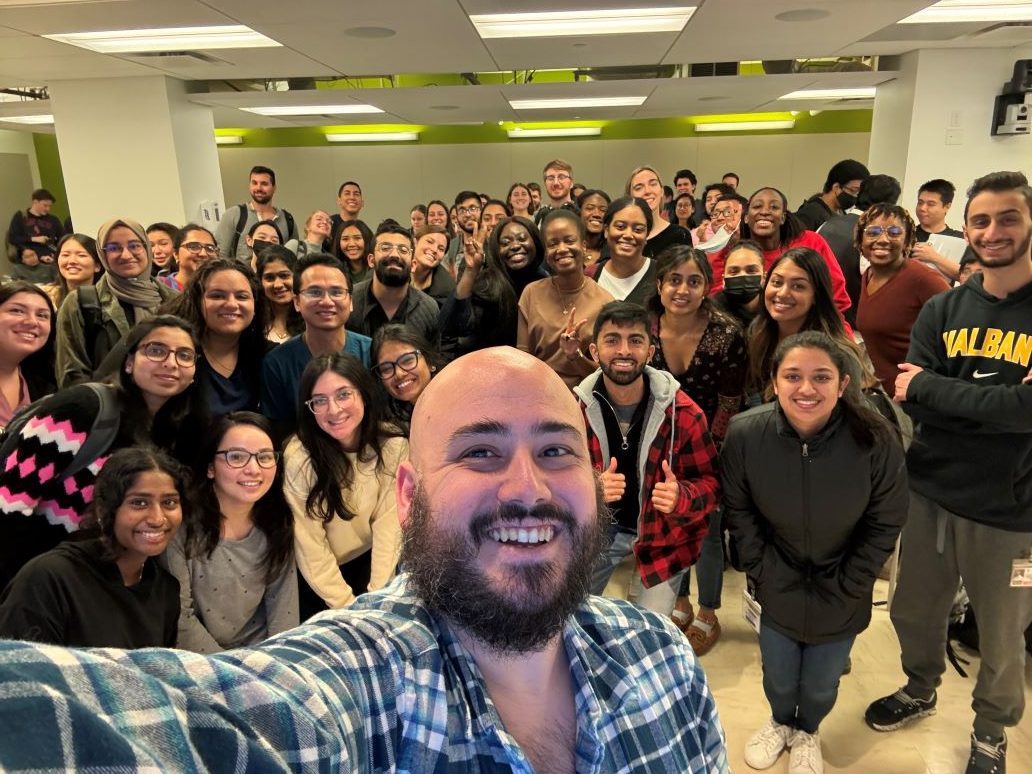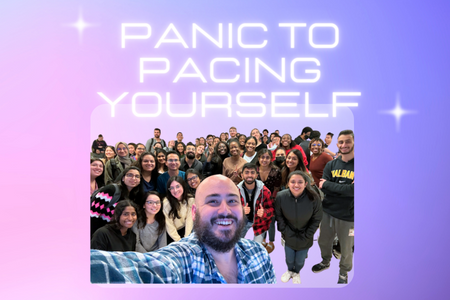Michael Foti, DO, is a new member of the NBOME National Faculty, a clinical assistant professor of internal medicine at Touro College of Osteopathic Medicine, and a passionate advocate for mental health. In this column, he discusses his own struggles with mental health in the aftermath of COVID-19 and the loss of his mother, and how osteopathic students can manage their own mental health as they navigate the Road to DO Licensure.
As an intern during the start of the COVID-19 pandemic, I witnessed daily suffering and death more than I ever thought possible. I was a part of the Rapid Response Team that sought to stabilize patients every hour and had to decide whether they needed to be upgraded to the ICU. I told patients’ families they loved them because they were too short of breath to do it themselves. I held my patients’ hands as they passed away because their families couldn’t be at their side. Then my mother passed away suddenly due to what was later found to be complications of stage IV lung cancer.
I was unable to process any of it.
 I became an attending physician with a sliver of hope that this would be a new beginning. However, as the job began, my anxiety heightened. I woke up daily with an intense fluttering sensation that would never remit. I awoke each night with extreme panic and symptoms of heavy chest pressure and squeezing pain along my left arm. After switching jobs and still seeing no improvement, I was losing hope.
I became an attending physician with a sliver of hope that this would be a new beginning. However, as the job began, my anxiety heightened. I woke up daily with an intense fluttering sensation that would never remit. I awoke each night with extreme panic and symptoms of heavy chest pressure and squeezing pain along my left arm. After switching jobs and still seeing no improvement, I was losing hope.
One night in December 2022, I had such intense chest pain that I ended up going to the emergency room, and I was diagnosed with anxiety and depression.
I felt ashamed and embarrassed that I could not live up to the expectations of being an osteopathic doctor.
When that identity was called into question, so too was my very being. But I summoned the courage to get the help I needed through visits to a psychologist and medication. I began to realize that I had ignored taking care of myself for so long that all of those unprocessed emotions finally came back to bite me. I put in the work I needed, and I healed.
We, as physicians, cannot take care of our patients–or even succeed on such high-stakes exams like COMLEX-USA–if we first do not take care of ourselves. It is important to remember that being a doctor is what we do, not who we are.
As you prepare for the COMLEX-USA, remember you must take care of yourselves throughout your studies. The preparation for these exams is a marathon, not a sprint. The exams themselves require a significant amount of stamina to stay focused for so many hours. Thus, take study breaks when you need them, be present while you study, and recognize when you need time to yourself. Take that time and do what makes you happy, whatever that may be. Be sure to make these breaks worthwhile. I always made it a priority to take a 15-minute break for every 1 hour of studying. I also made sure to take one day off each week during the “dedicated” study time when preparing for COMLEX-USA Level 1. These breaks will ensure you have maximized your stamina for test day, I assure you.
The stigma of mental health in the medical community exists because as a society, we tend to forget that healthcare professionals and student physicians are first and foremost human beings. In order to remove this stigma, we must, as a collective, continue to share our stories, speak up, and seek the help we need when we need it. It is OK to NOT be OK.
Do not be afraid to seek help, as I can assure you it will be the best and strongest thing you will ever do. Anxiety and depression are not weaknesses; they are part of the human experience. Get the help you need as soon as possible, and you, too, will be able to heal.
As a member of the NBOME National Faculty, these experiences give me a greater appreciation for not only how stressful it can be preparing for these exams, but also what happens when you don’t take care of yourself when you need to. Therefore, I will always advocate for raising awareness of mental health in the medical community, within the NBOME, and beyond.
I implore my fellow colleagues, student physicians, and all within medical education to stand with me in raising awareness and combating the stigma that has prevented so many from seeking the help they need. Let’s change the culture of medicine for the better, and let’s be the change we so desperately need.


